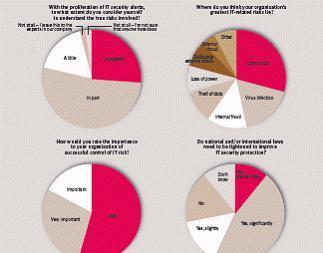The Organisation for Economic Cooperation and Development (OECD) has reported that 25% of PCs in the US could be infected.
The report goes on to say that although its economic and social impacts may be hard to quantify, malware used directly or indirectly can harm critical information infrastructures, result in financial losses, and plays a role in the erosion of trust and confidence in the Internet economy.
The figure was confirmed by IT security firm Tier 3.
"PC infections are a lot more prevalent than many corporates realise, mainly because many go unnoticed for long periods of time, until IT security software vendors get around to updating their applications to counter the specific malware involved," said Geoff Sweeney, CTO of Tier-3.
According to Sweeney, the report's assertion that the simple act of hooking a computer up to the Internet can mobilise armies of hidden agents and criminals out to subvert the system and business is quite correct.
"The Internet has become the modern equivalent of the Wild West. For most companies it's become as essential as the telephone, but it is far, far more dangerous," said Sweeney, adding that the OECD report's conclusions that cybercrime is a potentially serious threat to the Internet economy is right on the button.
"Companies need to ask themselves whether their existing single or multiple layers of IT security is sufficient to protect their IT resource. The answer to this question is almost certainly no for most enterprises, as they now need to extend their protection from variations on rule based technology to include behavioural analysis technology," he added.

















No comments yet